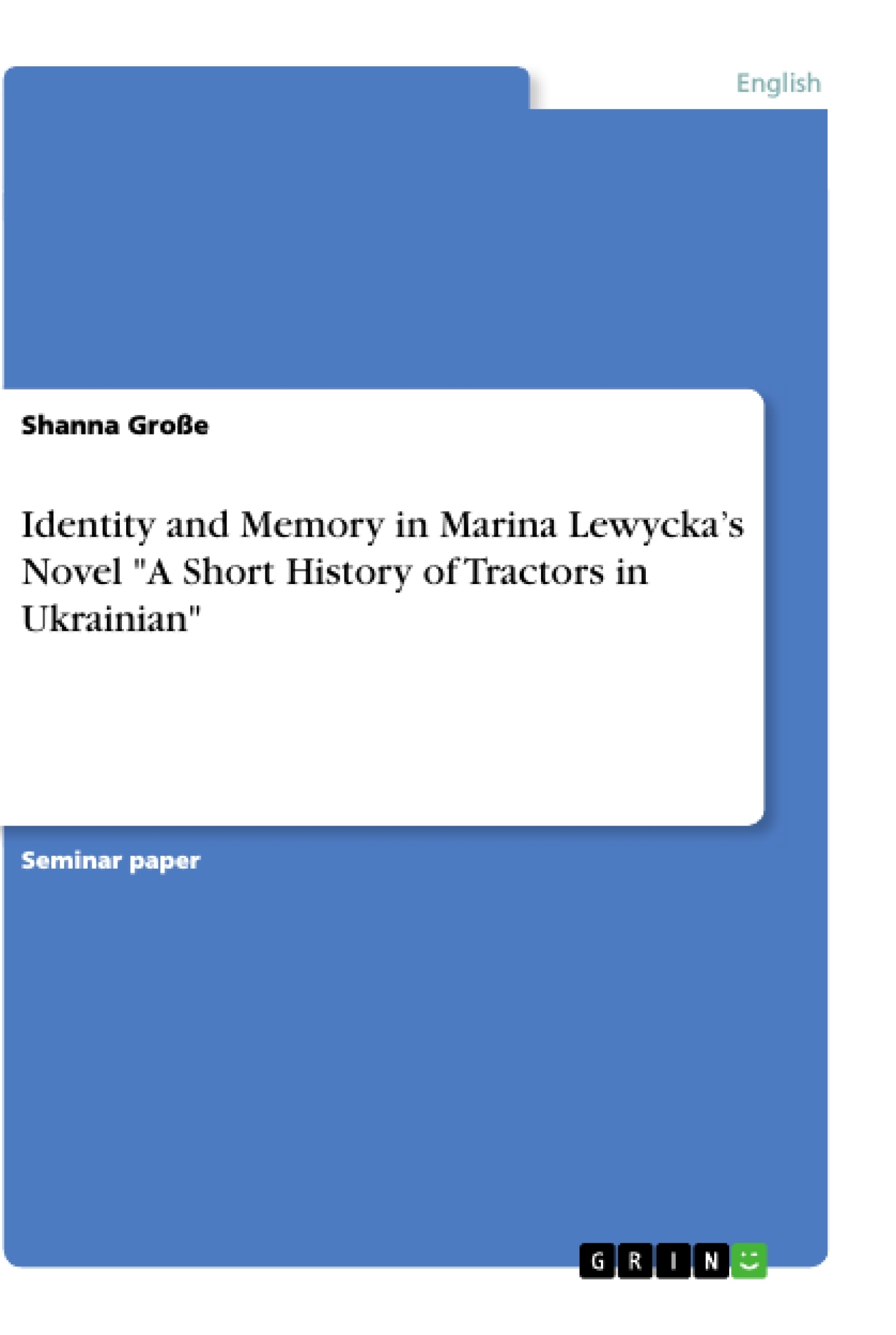This short paper intends to answer the questions how the identities of the two sisters in Marina Lewycka’s novel "A Short History of Tractors in Ukrainian" (2005) are shaped. As the novel contains various flashbacks through past telling, which again influences the different characters of Vera and Nadia, this paper also tries to explain to which extent a personal past memory plays a role within this process of forming their self-concept.
This is made by the theoretical constructs and definitions of identity and memory and the thought of how these two constructs are linked, meaning identity being created through memory. Through analyzing selected passages from the book, the theory is applied on the characters of both Nadia and Vera to find out more about their different identities and search for possible reasons in their past. The concept of collective and individual memory (Assmann) will play an important role to give possible reasons for their different perceptions of the past, which thus lead to many conflicts throughout the novel.
Lewycka uses memory, especially Nadia’s and Vera’s different perceptions of the past, to determine the sisters’ identities, which also serves as legitimization of their immigration to Great Britain. Selected close readings will show how both sisters developed two different self-concepts out of their memory and how this identification influences their attitude towards migration into a country.
Inhaltsverzeichnis (Table of Contents)
- Introduction
- The Past in the Present
- From Memory to Identity
- War Baby and Peacetime Baby
- The Legitimization of Migration
- Conclusion
- Bibliography
Zielsetzung und Themenschwerpunkte (Objectives and Key Themes)
This paper aims to explore the complex relationship between memory and identity, specifically within the context of Marina Lewycka's novel A Short History of Tractors in Ukrainian. Through analyzing selected passages, it examines how different characters, particularly the sisters Nadezhda and Vera, develop distinct self-concepts shaped by their individual and collective memories.
- The influence of memory on identity formation
- The role of individual and collective memory in shaping perceptions
- The impact of historical experiences on personal identities
- The relationship between memory and migration
- The concept of "War Baby" and "Peacetime Baby" in shaping identity
Zusammenfassung der Kapitel (Chapter Summaries)
The introductory chapter delves into the story of two sisters, Nadezhda (Nadia) and Vera, whose contrasting memories influence their identities and attitudes towards immigration to Great Britain. The chapter explores how memory serves as a tool for legitimizing their migration, contrasting their experiences with that of Valentina, a recent immigrant from Ukraine.
The first section of "The Past in the Present" delves into the theoretical frameworks of identity and memory. It examines how memory, particularly through individual and collective experiences, shapes one's self-concept and informs their understanding of the world. The section analyzes the interplay between individual memory, communicative memory, and cultural memory in constructing identity.
The second section of "The Past in the Present" focuses on the distinct identities of Nadia and Vera, labeled "War Baby" and "Peacetime Baby" respectively. The chapter explores how their different experiences, particularly the absence of war in Nadia's life, have shaped their individual and collective memories, leading to internal conflicts and contrasting perspectives.
Schlüsselwörter (Keywords)
Key themes and concepts explored in this work include memory, identity, immigration, collective memory, individual memory, cultural memory, "War Baby," "Peacetime Baby," and the novel A Short History of Tractors in Ukrainian by Marina Lewycka.
- Quote paper
- Shanna Große (Author), 2016, Identity and Memory in Marina Lewycka’s Novel "A Short History of Tractors in Ukrainian", Munich, GRIN Verlag, https://www.grin.com/document/538503




